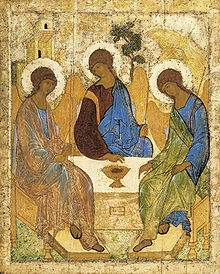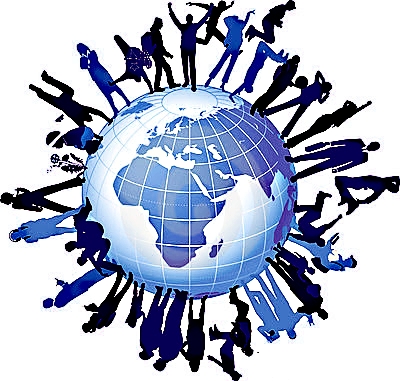The other day, I went to Starbucks – that was no surprise, because y’all know that I love Starbucks and that I go there because I love their chai lattes. And you know that whenever I come out here on Sundays, I stop at Starbucks multiple times along the way. So my going there the other day normally wouldn’t have been a big deal.
Except for the fact that the other day, I went there not just for my chai, but to take a stand.
You see, there is a group called the National Organization for Marriage, which is so anti-gay marriage that it organized what it called a “DumpStarbucks Day” because this group is upset. Really upset. Why? Because Starbucks has had the audacity to offer health benefits to its employees’ domestic partners.
NOM’s response to this offer?
It wants Starbucks punished.
So it started a Facebook page, “DumpStarbucks Day,” and asked people to boycott Starbucks on Wednesday last week.
Of course, a slew of my friends, who support gay marriage, among other things, were outraged and expressed that outrage on their Facebook pages, which meant it showed up on mine, and finally, after seeing all kinds of references to this, and wondering why my friends would support an attack on Starbucks, I checked out the whole thing and came away thinking, “Really? NOM is outraged that Starbucks treats its employees and their loved ones well? Hmpph! Not gonna let that happen!”
So on Wednesday, I made a point of going to Starbucks, where they know my green cup (if not me) quite well, and after I ordered, I told the barista I was there to support Starbucks against the DumpStarbucks movement.
Of course, she had no idea what I was talking about, so I explained it to her, and reiterated that I was there to show support for her employer.
“Someone has a problem with Starbucks giving us health benefits?”
“Not just you. But domestic partners as well,” I said.
“Huh?”
I had to explain that domestic partners frequently but not always are gay, which is when one of the other customers piped up: “What? Some group is objecting to what?”
So I explained – again – the whole idea, and that I was there to support the company, and that I would be back later in the day, to really show my support, and then the barista asked, in great confusion,
“Why would anyone care who Starbucks gives benefits to? What business is it of theirs?”
“Exactly,” I said.
“It’s nobody’s business but Starbucks and its employees,” the customer said.
And then the barista asked: “Is this group Christian?”
“Yeah, that’s what they claim,” I said.
“See, that’s what I hate about churches,” the barista said. “I hate it when they … they …” She was literally stumbling over her words, trying to figure out how to express what it was that she hated.
“Hijack your faith?” I asked.
“Yeah!” she said. “I hate that.”
“Me either,” I said. “As an Episcopal priest, I can tell you: This is not what Christianity is all about.”
The customer chimed in again: “My dad goes to this church in Fairfax, the Unity church,” he said, “where they welcome everyone, and they relate their faith to what’s happening today, instead of just telling us what was said thousands of years ago.”
“You gotta make the faith relevant to our lives today,” I agreed.
We talked for probably another 10 minutes, ending with me inviting people to The Episcopal Church (alas, I had to tell them the commute to Blue Grass was pretty long), and then I headed on to my appointment.
Afterward, I thought about how, in that short encounter, we – the barista, the other customer and I – had formed a community. Just for a short time, yes, but a community nonetheless.
And isn’t that what we’re talking about when we talk about the Trinity, the feast we celebrate today?
Aren’t we talking about community?
Because isn’t that what the Trinity is all about? Community?
Father, Son and Holy Spirit?
The way we read the Scriptures, the Father, the Son and the Holy Spirit always work together … in the beginning and from the beginning. You never find two of them off working while one stays behind, drinking a martini. The Trinity is a community, and it is always together.
And remember, my friends, this is the image in which we are made, the image of God, which is one of love and one of community.
Which means that we are created to live in community just like the Trinity.
• • •
I can tell you that there are many, many of my colleagues this morning who claim that you cannot explain the Trinity of Father, Son and Holy Spirit, who say the Trinity is a mystery and we are not made to understand mysteries, who allege that anyone who even tries to explain the Trinity is … well, is a fool. That really, we are all like Nicodemus, confused and wondering what the heck Jesus is talking about in the depths of the night.
To which I reply: Anyone who cannot explain the Trinity isn’t really trying, and that to fob the whole thing of as some sort of inexplicable mystery is … well, let’s just say it’s foolish. Because we are not Nicodemuses! We, my friends, are God’s creation, made in God’s image. And we do not need to stumble around in our faith and say, “Well, I can’t really explain the Trinity because it’s a cosmic mystery”!
Because the Trinity is, in its most basic form, nothing more – and nothing less – than community.
So let’s get the basic explanation of the Trinity out of the way so we can get to the heart of the matter, OK?
See this blue water? This is God the Father, the one who created us not because we are necessary – remember, we are not – but because God loved us into being. (pour water into glass bowl)
See this yellow water? This is God the Son, the one who lived among us as one of us, who laughed and cried, who celebrated and suffered, who died for us. (pour water into bowl, making water turn green)
See this red water? This is God the Holy Spirit, the advocate who comes to us to lead us, guide us, give us the breath to be bold in our faith. (pour water into bowl, making water turn amber)

Now … you tell me … which one is which?
Can you separate God the Father from God the Son from God the Holy Spirit?
No?
That’s because you can’t separate God into pieces. You. Cannot. Separate. The Father. From the Son. From the Holy Spirit.
Three in One. One in Three.
A community.
Because, my friends, that’s the Trinity … an inseparable community that you can’t really tell apart and can’t possibly tear apart, always together, always united, always in love with each other.
And we, who are created in the image of God, are created in that image of community.
Which means that wherever we are, we need to be in community.
But we can’t simply show up and hope community somehow magically “happens.”
We, created in the image of community, have to make community.
We have to work at community.
And just like the community in whose image we are created, we have to be bold at community-making.
Because God the Father certainly was bold in creating us and inviting us –inviting us! – to love one another and ourselves and God, knowing full-well that we might just turn down that invitation, but boldly taking that chance anyway.
Because God the Son certainly was bold in everything he did, preaching, teaching, healing, giving sight to the blind and hearing to the deaf, voice to the mute and making the lame leap for joy! God the Son was bold in choosing not only to live for us but to die for us!
And God the Holy Spirit? Oh, my gosh, the Holy Spirit is nothing but boldness personified, inspiring us – literally, giving us breath! – guiding us, giving us the right words to speak, helping us choose the right actions to take. Oh, my, the Holy Spirit defines boldness!
This bold image of the Trinity is the image in which we are created! To be bold in our community!
• • •
I read an article yesterday by a church musician named Nicole Keller, who was lamenting the fact that so many Christians seem to give up on their faith.
“… I believe that there is no such thing as a non-extreme Christian,” she wrote on her blog, Under the Cassock.[1] “Christianity,” she says, “is a radical faith, even in its utmost humility. … [T]he core of Christianity includes bringing Christ to those who do not know him by showing them who he is. That doesn’t mean I have to go door to door like our Mormon friends … It could be as basic as helping a random stranger pick up the groceries they (sic) dropped in the parking lot, bringing up your children to be faithful Christians, or feeding the poor at the local soup kitchen – that’s living the Gospel, baby,” she writes. “But along with those actions we must be willing to admit openly, when necessary, that we do them because our faith inspires and requires us to do so with a loving heart.”
“Is that really so hard?” she asks. “When someone asks me, ‘Why are you helping me” I can simply say ‘because my faith inspires me to love those around me.’ … It is simply showing them who I am.”[2]
And who we are is a people created in God’s image of community … and not just any community, but a bold community, willing to go out and live our faith and willing to go out and proclaim our faith!
This is what the Trinity is all about …

Boldly living …
Boldly proclaiming …
We are not nice – we do not love one another – just “because.”
We do so because we are created and commanded to do so.
So when you think about the Trinity, here’s what I want you to think about:
Not that the Trinity is some inexplicable mystery about God that will only be fully explained once we reach the Omega of this life so we can get to the Alpha of the rest of our lives.
No!
The Trinity, my friends, is the very essence of our being that empowers us to boldly live and boldly proclaim our faith every moment of our lives, with every person we meet, in every thing that we do.
So the next time you stop for that cup of coffee, make sure you get the bold kind. The kind that builds a community (even for a moment) in the image of God.
Live your faith boldy. And then talk about your faith boldly. Be clear with people: Whatever kindness you are doing, whatever blessing you are bestowing, whatever love you are showing, you are doing so because you are created in the image of God.
Don’t be Nicodemus, showing up in the middle of night, filled with fear and confusion.
Instead, just be who you are.
Bold children of God.
Amen.
Sermon preached on the Feast of the Trinity, Church of the Good Shepherd, Blue Grass, Va., 3 June 2012, Year B.
[1] Nicole Keller, “Saving The Church From Itself,” Under the Cassock blog, 2 June 2012, http://underthecassock.blogspot.com/2012/06/saving-church-from-itself.html.
[2] Ibid. All emphases original.




